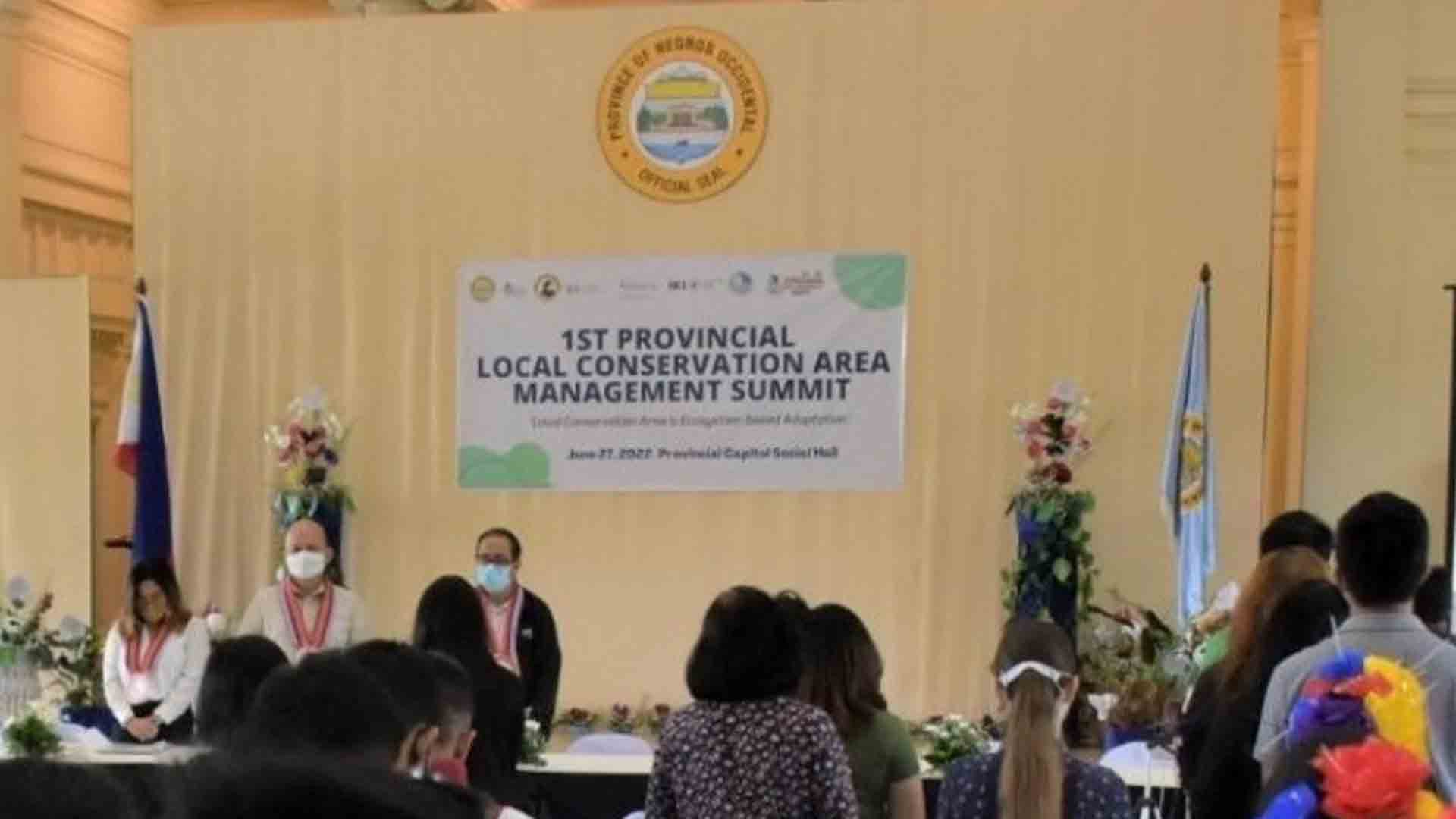The Negros Occidental government is adopting the Ecosystem-based Adaptation (EbA) technique for the conservation of a major river basin in the southern part of the province.
The EbA was introduced during the 1st Provincial Local Conservation Areas Management Summit as part of the observance of the 30th Provincial Environment Month at the Social Hall of the provincial capitol here on Monday.
“I think it is very clear that among the priorities of the administration of Governor Eugenio Lacson is food security and water security. If not equally, or most important of all, is water. Water is a source of life,” said Provincial Administrator Rayfrando Diaz II, who sits as the action officer of Provincial Environment Conservation and Development Program.
He underscored the need for watershed conservation to have safe water for Negrenses.
The summit, organized by the Provincial Environment Management Office, has funding support from the German-commissioned Deutsche Geselschaft fur Internationale Zusammenarbeit’s (GIZ) Ecosystem-based Adaptation in 2 River Basins (E2RB) Project.
The implementation includes the conservation of the Ilog-Hilabangan River, a 2,000-square-kilometer wide basin, which is among the priority protected areas of the provincial government.
The Ilog-Hilabangan River serves as the catch basin of waters coming from the mountain ranges of Candoni town connecting through Tabla River in Barangay Magballo, Kabankalan City and of waters from some portions of Negros Oriental merging through Hilabangan River in Barangay Orong also in Kabankalan.
The EbA project, partially funded by the German Federal Ministry of the Environment, Nature Conservation and Nuclear Safety, through its International Climate Initiative, is considered a high-technology yet cheaper solution to the aquatic environment problems.
It requires the integrated management and multi-level participation among different sectors like the local government units (LGUs), private sector partnerships, and local stakeholders.
The project seeks coordinated implementation that will provide reliable and quality water supply and disaster risk management; creation of financial instruments to support ecosystem-based measures; valuation instrument that is included in government policies; and an inclusive and accessible knowledge and information relevant to ecosystem services.
During the summit, discussions included existing interventions already in place, the effects of the aquatic ecosystem health among the locals, the best practices of the LGUs, and the calls for strengthened regulation of marine biodiversity.
Also tackled were some of the major problems of the province’s water bodies such as illegal practices like kaingin, hunting of wildlife, and illegal fishing in upland areas; and solid waste management and pollution in urban areas. (PNA)







